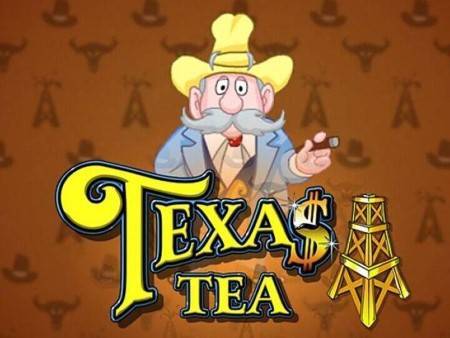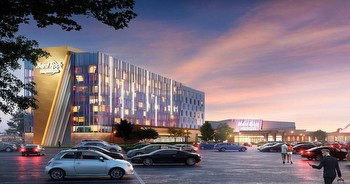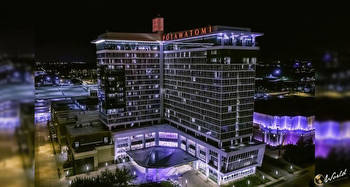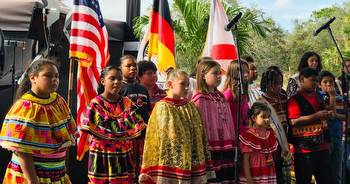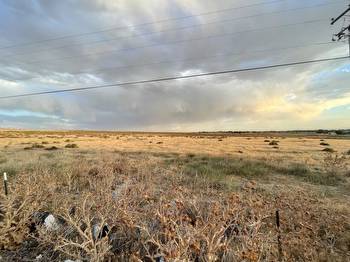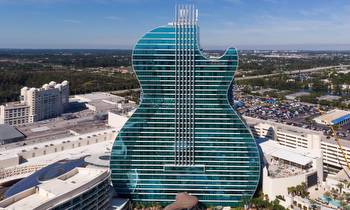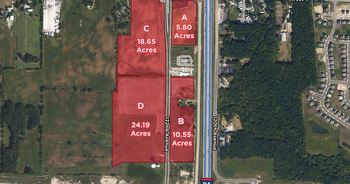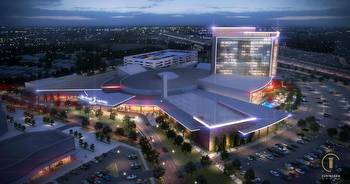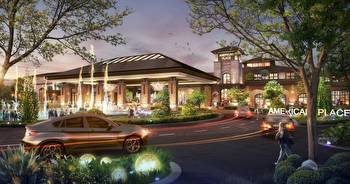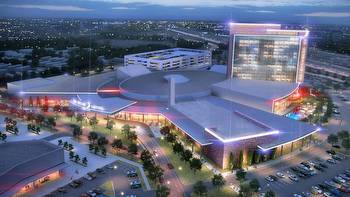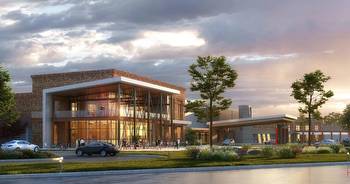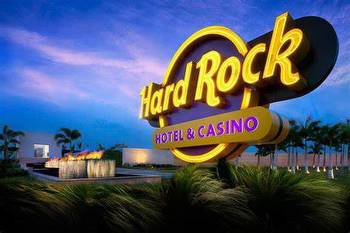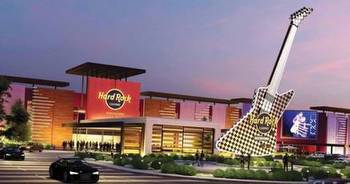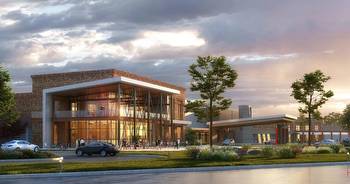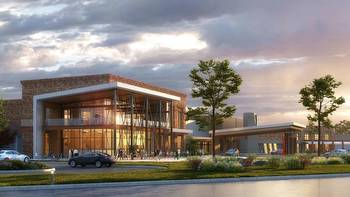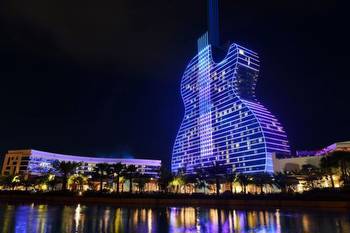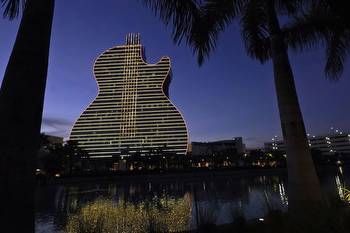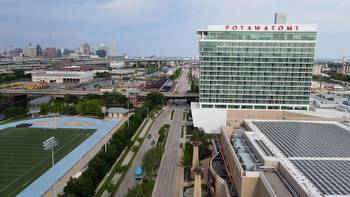Menominee Indian Tribe of Wisconsin renews efforts to bring a casino to Kenosha
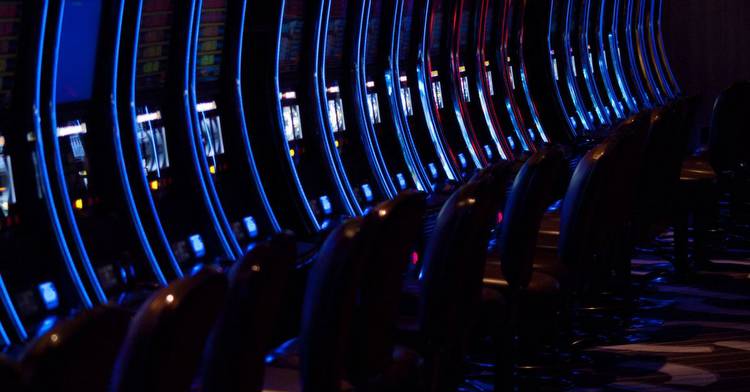
The Menominee Indian Tribe of Wisconsin has relaunched efforts to bring a casino to Kenosha — roughly seven years after its last attempt was blocked by former Gov. Scott Walker.
In July, the tribe announced that it had once again partnered with Hard Rock International, which is owned by the Seminole Tribe of Florida, to construct a scaled-down casino and entertainment venue on a 60-acre parcel previously owned by Kenosha County’s village of Bristol. The Menominee have been trying to bring a casino to Kenosha since the 1990s, and it partnered with Hard Rock in its most recent attempt.
An October report by the Wisconsin Legislative Reference Bureau found that the state’s possible liability from a casino project in Kenosha would be less than it was in 2015, when Walker rejected the project.
Despite receiving support from a pair of bipartisan state lawmakers and the city of Kenosha, some of the state’s other Indigenous tribes are opposed to the project.
Menominee Chairman Ron Corn Sr. said the tribe never stopped working to bring a casino to Kenosha, but the announcement came because it had an option to purchase land for the project.
"We're able to put that land into trust to build a casino, and (the purchase will) be a part of the development," he said. "In the process of (the) land trust, we will be negotiating intergovernmental agreements with the city and the county of Kenosha."
Corn said revenue from the casino, if approved, would improve the financial prospects of the Menominee Tribe, which has historically had high rates of poverty and unemployment.
"The Menominee have a whole lot of unmet needs here on the reservation as it comes to health, education, housing — all those things that governments look to provide for their people,” he said. "The additional revenue would assist us in meeting that need."
Beyond helping the Menominee, the project also could be a tourism draw for the city of Kenosha, according to City Administrator John Morrissey.
He said the city and tribe have been in discussions regarding the proposed casino and what a new agreement would look like.
"The city at this point is still very much in favor of the project," Morrissey said. "The simple fact that Hard Rock partnered with Menominee, I think that's a game changer just simply based on the Hard Rock brand and what they bring nationally and internationally."
Morrissey said the city and tribe plan to meet again in mid-January to continue talking about the project, which is still in the very early stages.
When the tribe last proposed a casino in Kenosha, it sought to develop a 221-acre parcel on the former Dairyland Greyhound Park. That site has since been redeveloped as an industrial park.
This time around, the tribe has scaled the project down because of increased gaming competition in Wisconsin and Illinois, Corn said.
"As we understand, there's going to be a casino in Waukegan, (Illinois); there's going to be a casino in Chicago; Hard Rock has a casino in Rockford, (Illinois); and then the Ho-Chunk are planning a casino in Beloit," he said. "With all that competition, the people in the know, so to speak, felt that we should scale down."
While there is increased competition compared to 2015, a 2021 report by the Wisconsin Legislative Fiscal Bureau found that tribal gaming revenues significantly increased from 1992 to 2019. Revenues increased from $142.7 million in 1992 to $1.3 billion in 2019.
Although the new Kenosha casino project would be smaller than the $800 million casino complex the Menoninee previously eyed, Corn said the current plan, which is still in flux, is for the new facility to feature a hotel, entertainment complex, café and gaming floor.
The project still has to be approved by federal regulators before it can move forward, a process which could take years. In Wisconsin, off-reservation casinos must be placed into a federal trust, which requires approval from local governments, the U.S. Interior Department and the governor. Last time around, it took the Department of Interior nine years to review the Menominee's application to take the 221-acre Dairyland parcel into trust.
When Walker rejected plans for a casino in 2015 early in his failed presidential campaign, he cited the potential liability to the Forest County Potawatomi Community for lost revenue at its casino in Milwaukee.
But the Legislative Reference Bureau report found that the liability has been "significantly reduced" because of an amendment to the 2018 gaming compact between the state and the Potawatomi. The report was released by State Sens. Van Wanggaard, R-Racine, and Bob Wirch, D-Somers.
"With this new examination of the amendment approved between former Gov. Walker and the Potawatomi, there is significantly less financial risk to the state in approving a Kenosha casino," the lawmakers said in a joint statement. "Now, there are even more reasons to support the Menominee’s effort to team up with Hard Rock International to develop and build a destination entertainment center and casino in Kenosha."
However, Potawatomi spokesperson George Ermert questioned how much of the revenue from a Kenosha casino would stay in Wisconsin, citing the Menominee’s partnership with the Florida Seminole.
"The Potawatomi are opposed to a casino in Kenosha, and they do not want to see a tribe from Florida come in and take potentially hundreds of millions of dollars from Wisconsin back to Florida," he said. "And that's what would happen with this proposal by the Florida Seminole and the Menominee."
Ermert said the Potawatomi are not opposed to off-reservation gaming in Wisconsin as the tribe supported the Ho-Chunk’s efforts to bring a casino to Beloit, which will have a financial impact on the Potawatomi’s operations.
"That (project) is (on) Ho-Chunk treaty land, and that development is going to be completely managed and run by the Ho-Chunk," he said. "This is not a matter of Potawatomi simply not wanting to see another casino in Wisconsin."
Beloit is about an hour and a half away from Milwaukee, while Kenosha is about 46 minutes away.
Other concerns around the project stem from Kenosha being part of the Potawatomi’s historic treaty land, Ermert said.
Corn said the partnership with Hard Rock and the Seminole is aimed at utilizing its brand and expertise to make the Kenosha casino a destination for people from throughout the Midwest.
Right now, he said the project is in the "hurry up and wait" phase.
"Everybody knows governments operate pretty slowly," he said. "We're very optimistic about our project, and we're gonna continue to do the work that we need to do to make it a reality."







